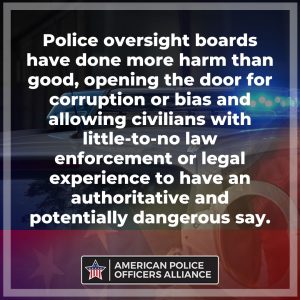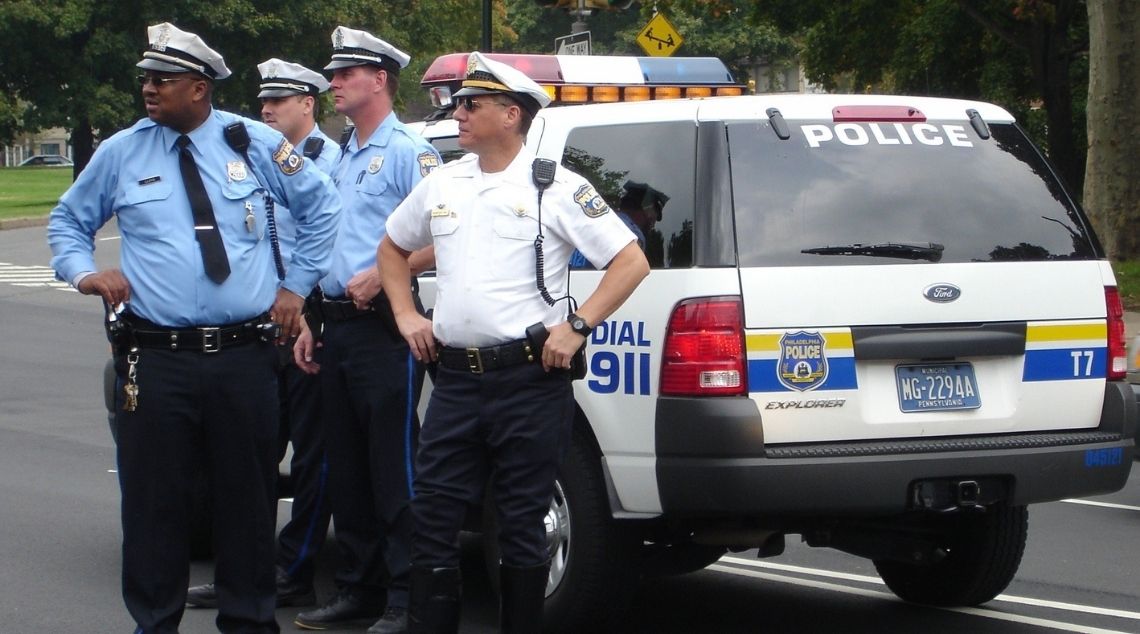Police oversight boards and committees continue to be a hotly debated topic among both citizens and law enforcement agents around the country. While many states and municipalities have enacted some form of civilian oversight (or police oversight, in general), the results of these boards are quite mixed. In fact, in many cases these boards have done more harm than good, opening the door for corruption or bias and allowing civilians with little-to-no law enforcement or legal experience to have an authoritative and potentially dangerous say.
And yet, the call for oversight boards still rings clear from many civilians who feel that the actions of police officers are not transparent and that the officers are not held accountable for their actions. So in an effort to quell the relations between law enforcement and civilians, these oversight boards continue to be called into the limelight. But are they actually beneficial? Or do they do more harm than good? Are there any successful community policing programs?
Lawmakers in New Hampshire are setting out to find out what, if any, models for success there are among police oversight boards. Of course, finding suitable police oversight models can be a big ask. That’s why state Rep. Amanda Bouldin, D-Manchester introduced House 1257, a bill that would set up a study committee to dive into the way in which other states and jurisdictions handle officer-involved shootings. This is one area that repeatedly brings up a call for police oversight. And for Rep. Bouldin, finding a suitable and successful community policing program may be worthwhile for community relations. “It might provide a higher level of trust from the public and encourage more positive interactions,” she said.

Of course, there is a potential for much more harm than good when you toe the line of involving civilians in officer-involved shootings. In a situation in which civilians have no experience with what an officer is faced with, we almost certainly will see officers unfairly or poorly judged on their actions.
Mark Beaudoin, executive director of the New Hampshire State Troopers Association and a retired state trooper himself, says that if an oversight board were to be created, the civilians on it would need a massive amount of preparation. In order to be successful, “a civilian review board would need to have extensive training in the statute, case law, firearms mechanics and simulations to get a better understanding of the stress that an officer would feel in those moments,” an article from Seacoast Online states. The fact remains, though, that nothing can replace real experience, and our fear is that even with this “preparation”, the board would nonetheless be grossly unprepared for properly handling these matters.
Another burden of oversight boards is the fact that they cost money. And the more power the board is given, the more it eats into the budget that should be going to protect our officers and provide them with the necessary resources to do their jobs. Giving a board investigatory and/or disciplinary comes with many associated costs. This is hard to fit into a budget that is already stretched thin. When coupled with the risks a board plays to the ability of officers to do their jobs, it becomes a serious danger to law enforcement to put these commissions into place.
While some may be against the idea of police commissions, leaning on the idea that “police shouldn’t police themselves”, this may be a viable way to achieve a greater level of public transparency while allowing those with experience to lead the way. These police commissions, however, are often not given investigatory powers, something that has been debated recently in Vermont.
The bottom line is this: police oversight boards can be dangerous to the success of law enforcement agents. A citizens police oversight committee poses a threat because of the lack of context and experience the board members have. While there may be some examples of police oversight models or successful community policing programs, it’s important to remember that law enforcement is a job that not just anyone can understand, and certainly not just anyone can make decisions on behalf of.









